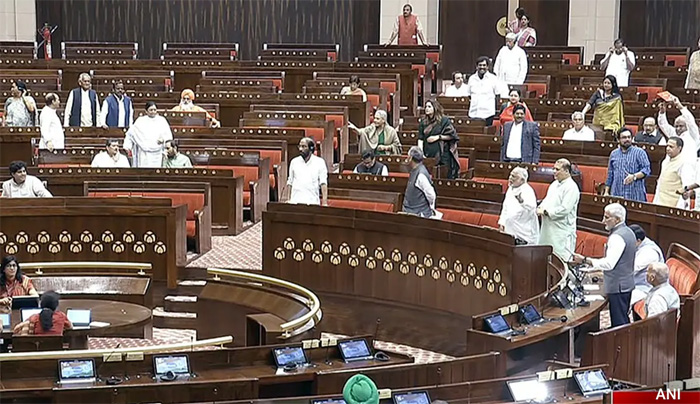Day 4 in Parliament: Women’s reservation bill passed in Lok Sabha, set for another litmus test today
The special session of the Parliament is on its second-last leg today. Apart from starting a new chapter in India’s legislative history by kickstarting its business in new building, majority of the attention was drawn towards the contentious women’s reservation Bill, which was passed in the Lok Sabha on Wednesday with near unanimity.
The historic Bill, termed as Nari Shakti Vandan Adhiniyam, will now be taken up in Rajya Sabha for passage for the remainder of the session. As a part of the Constitution (128th Amendment) Bill, it might require approval from half of state assemblies.
Meanwhile, the Biju Janata Dal (BJD), known for siding with BJP in the Centre, has issued a three-line Whip to its Rajya Sabha MPs to be present in the House today and support the passage of the Bill.
After the passage in the lower House, Prime Minister Narendra Modi said, “I thank MPs across Party lines who voted in support of this Bill.”
Despite Opposition’s contention over its implementation and demand for extending similar benefits to other backward classes (OBC), the Nari Shakti Vandan Adhiniyam was passed with overwhelming majority votes in Lok Sabha.
It received 454 votes in favour as opposed to two votes against the Bill. It will be presented in the upper House for passage today, which is likely to get cleared.
The day-long debate over the Bill witnessed a battle for credit between Congress and BJP as to who should be recognised for bringing forth the landmark Bill. Both the Opposition and the Centre were also engaged in the debate of its implementation and including separate quota for OBC women.
On the third day, Sonia Gandhi opened the debate on women’s reservation Bill and said, “For the last 13 years, Indian women have been waiting for their political responsibilities, and now they are being asked to wait for a few more years — two years, four years, six years, eight years.”
The Bill proposes one-third, or 33% reservation, for women representative in both Lok Sabha and state assemblies. The reservation will continue to be in place for 15 years from the day of its implementation, with provision for the Parliament to extend the duration if required.
The 128th Constitution Amendment Bill states that political reservation for women will only come into effect after the relevant census figures are published and the delimitation – an exercise comprising the revision of seat numbers in Parliament and the redrawing of constituency boundaries – is done on the basis of that.
This provision signifies that the reservation can be implemented not before 2029, if the Bill gets passed in Rajya Sabha during this session.
Congress leader Rahul Gandhi yesterday said, “Two things seem strange. One, the Idea that you need new census for this bill and new delimitation and I think this bill can be implemented today. I wonder this is not designed to push it forward by seven or eight years and let it play out the way it does.”
Union home minister Amit Shah responded, “Let us rise above partisan politics to give women the respect they deserve. Earlier they have been left disappointed four times by Parliament. Let this bill be passed unanimously.”
“I thank MPs across Party lines who voted in support of this Bill. The Nari Shakti Vandan Adhiniyam is a historic legislation which will further boost women empowerment and will enable even greater participation of women in our political process,” PM Modi wrote on X (formerly Twitter) after the Bill was passed in Lok Sabha.

